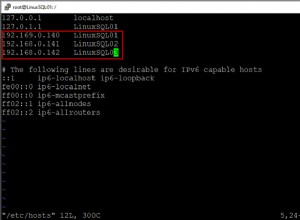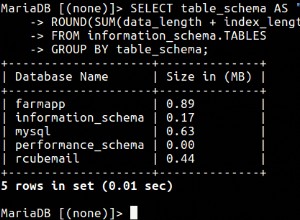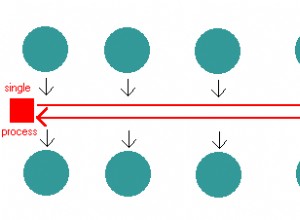prod_catg LIKE '1,%' --matches when 1 is the first category
OR prod_catg LIKE '%,1,%' --matches when 1 is somewhere in the middle
OR prod_catg LIKE '%,1' --matches 1 when is the last category
w każdym razie lepiej zrefaktoryzować schemat, dodając tabelę kategorii i odniesienie do niej w tabeli produktów (głównej)
EDYTUJ
innym sposobem na zmierzenie się z tym problemem jest użycie REGEXP
co doprowadzi do krótszego WHERE klauzula (oto, co testowałem):
DECLARE @regexp VARCHAR(100);
SET @regexp = '^1,.*|.*,1$|.*,1,.*';
SELECT
'1,11,15,51,22,31' REGEXP @regexp AS test1,
'51,11,15,1,22,31' REGEXP @regexp AS test2,
'11,15,51,22,31,1' REGEXP @regexp AS test3,
'7,11,15,51,22,31' REGEXP @regexp AS test4,
'51,11,15,7,22,31' REGEXP @regexp AS test5,
'11,15,51,22,31,7' REGEXP @regexp AS test6;
to będzie pasować do Twojego prod_catg względem wyrażenia regularnego '^1,.*|.*,1$|.*,1,.*' returnig 1 (TRUE) jeśli pasuje, 0 (FALSE) inaczej.
Wtedy Twoja klauzula WHERE będzie wyglądać tak:
WHERE prod_catg REGEXP '^1,.*|.*,1$|.*,1,.*'
wyjaśnienie wyrażenia regularnego:
^1,.* --matches 1 at the beginning of a string followed by a `,` and any other char
.*,1$ --matches 1 at the end of a string preceded by a `,` and any other char
.*,1,.* --matches 1 between two `,` which are sourrounded by any other chars
| --is the OR operator
jestem pewien, że to wyrażenie regularne może być znacznie bardziej zwarte, ale nie jestem tak dobry z wyrażeniami regularnymi
oczywiście możesz zmienić szukaną kategorię w wyrażeniu regularnym (spróbuj zastąpić 1 z 7 na powyższym przykładzie)




